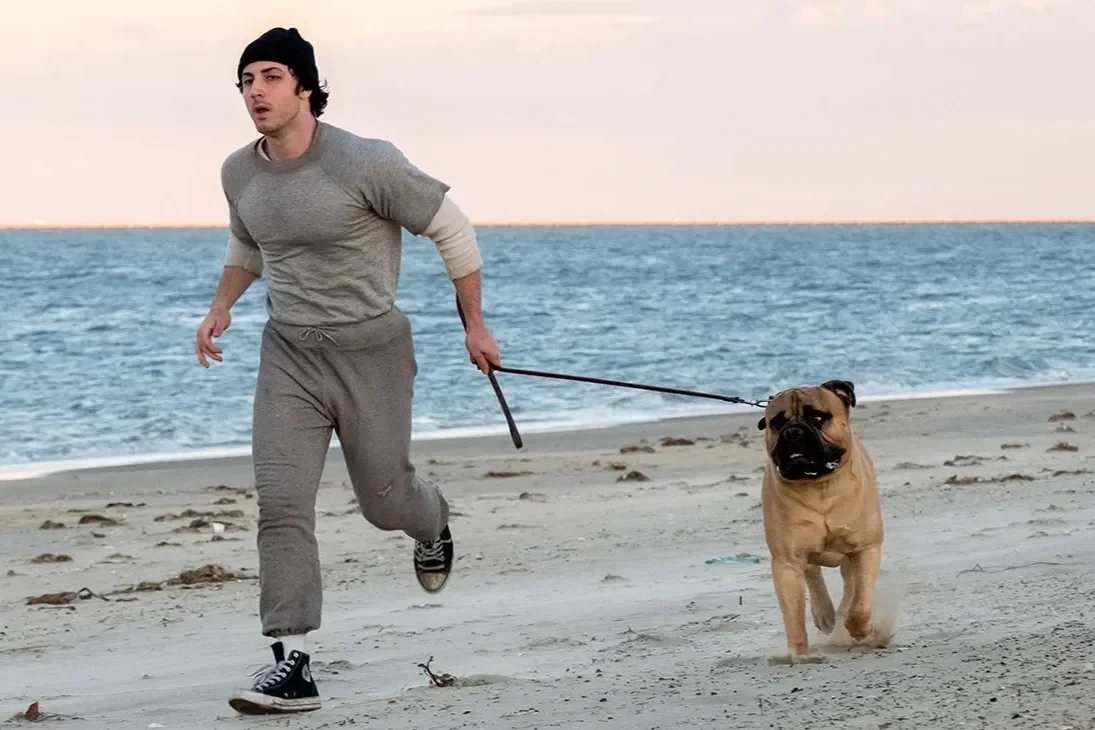‘The Long Walk’ Review: Francis Lawrence Delivers a Gripping Dystopian Allegory With Stunning Central Performances
Courtesy of Lionsgate..
SPOILER FREE REVIEW
Francis Lawrence’s ‘The Long Walk’ doesn’t always land the operatic intensity it reaches for, but it succeeds as a stark and unnerving dystopian thriller with a deeply committed cast. Drawn from Stephen King’s 1979 novel, written under the Richard Bachman alias, the film imagines an alternate America with echoes of the post-Vietnam era. Its conceit is deceptively simple: a group of young men, conscripted by lottery, must keep walking until only one remains. Their ordeal is broadcast for the masses, equal parts patriotic propaganda and sanctioned bloodsport.
The story begins not with spectacle but with intimacy. Ray Garraty (Cooper Hoffman) bids a wrenching farewell to his mother (Judy Greer) before stepping into the 19th iteration of the Walk. Forty-nine other boys join him, one from each state, though JT Mollner’s screenplay deliberately leaves gaps in the broader world-building. Those elisions matter less once the characters take shape, thanks to performances that cut beyond archetype. Garraty quickly gravitates toward the outspoken Peter McVries (David Jonsson), the devout Arthur Baker (Tut Nyuot), and the combative Hank Olson (Ben Wang). Their camaraderie is genuine, but every bond feels precarious under the looming presence of the nameless Major (Mark Hamill), who oversees the march with chilling detachment.
Visually, the film embraces its constraints. Nearly every scene depicts men walking, yet Lawrence and cinematographer Jo Willems avoid monotony through careful staging and kinetic camerawork. Long tracking shots emphasize exhaustion and dread, while varied blocking within the frame sustains tension. Even in repetition, the imagery feels purposeful, underscoring the slow erosion of humanity as the Walk grinds forward.
The violence, inevitable and unsparing, shocks not through gore but through its emotional weight. Each death reverberates among the survivors, reinforcing the futility of their struggle while hinting at the authoritarian system that orchestrates it. The outside world remains largely unseen, but its influence permeates every exchange; desperation, rebellion, and resignation collide in conversations that reveal the young men’s conflicting motives.
Courtesy of Murray Close/Lionsgate.
At the film’s heart lies the evolving dynamic between Garraty and McVries. Hoffman lends Garraty a mix of stubborn resolve and underlying fragility, while Jonsson emerges as the standout, crafting McVries as both a reluctant leader and a vessel of hard-won compassion. Their relationship—by turns invigorating, adversarial, and achingly tender—anchors the narrative, transforming a relentless death march into something more intimate and human.
Where ‘The Long Walk’ falters is in its finale. The closing passages attempt sweeping gestures about sacrifice and resistance, but their execution feels unfocused, leaving the conclusion emotionally diluted. Still, the film’s ambiguities do little to diminish the intensity of the journey itself.
Ultimately, Lawrence delivers a work that is harrowing, atmospheric, and often moving, even if it stops short of greatness. ‘The Long Walk’ is less an action spectacle than a bleak parable about youth, state power, and the fragile bonds that emerge in the shadow of violence. It may stumble at the finish line, but the path getting there is absorbing, unsettling, and well worth the trek.
Our score: ★★★★☆
(out of 5 stars)







